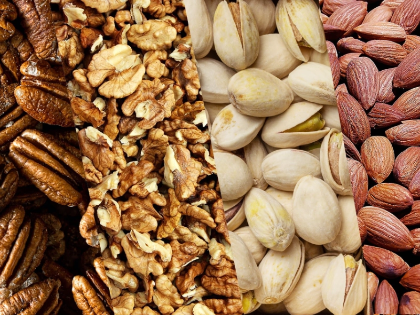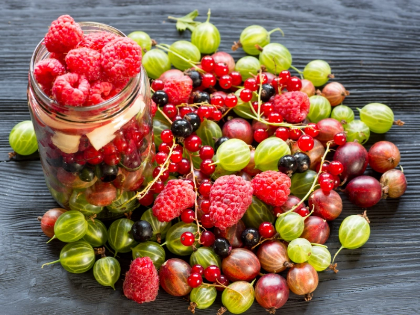Vitamin D and Cancer Prevention: What the Research Shows
1.Vitamins D: Their Value One essential nutrient that is absolutely important for preserving general health is vitamin D. Among vitamins, it is special since the body may synthesis it by sun exposure. Essential for immune system function, bone health, and associated to several chronic disorders including cancer, this fat-soluble vitamin is Knowing its possible influence in the prevention of cancer has turned into a major focus of study.
2.Connecting Vitamin D to Cancer Many studies have indicated that appropriate amounts of vitamin D might be linked to a lower risk of some kinds of cancer. This link is thought to result from vitamin D's control of cell development, differentiation, and apoptosis—programmed cell death. Promoting good cell function will aid vitamin D help stop the uncontrolled cell multiplication that defines cancer.

 5.Vitamin D sources One can get adequate vitamin D levels by means of several sources. The most natural approach is to be in sunlight since UVB rays causes the skin to synthesis vitamin D. Dietary sources include supplements, fortified foods like milk and cereals, and fatty fish (like salmon and mackerel). Many, particularly those who live in northern latitudes or with minimal sun exposure, may find supplementation required to reach appropriate levels.
6.Suggested vitamin D levels Age, sex, and life stage all affect the advised dietary allowance (RDA) for vitamin D. Generally speaking, depending on their particular demands and health situation, people should strive for 600 to 800 IU (International Units) daily. Regular blood tests guide dietary and lifestyle changes as necessary by helping one to ascertain whether one has enough vitamin D levels.
5.Vitamin D sources One can get adequate vitamin D levels by means of several sources. The most natural approach is to be in sunlight since UVB rays causes the skin to synthesis vitamin D. Dietary sources include supplements, fortified foods like milk and cereals, and fatty fish (like salmon and mackerel). Many, particularly those who live in northern latitudes or with minimal sun exposure, may find supplementation required to reach appropriate levels.
6.Suggested vitamin D levels Age, sex, and life stage all affect the advised dietary allowance (RDA) for vitamin D. Generally speaking, depending on their particular demands and health situation, people should strive for 600 to 800 IU (International Units) daily. Regular blood tests guide dietary and lifestyle changes as necessary by helping one to ascertain whether one has enough vitamin D levels.
 7.Sunlight's Importance Although food and supplements help one get vitamin D, sunshine exposure is still a major determinant of ideal levels. Sun exposure must be balanced, nevertheless, with regard for skin cancer risk. While short amounts of sunshine without sunscreen can assist increase vitamin D levels, longer exposure should be carefully considered to reduce the risk of skin damage and cancer.
8.Vitamin D Deficiency: Cancer Risk Common worldwide, vitamin D shortage has been linked to higher risk of certain malignancies. Low vitamin D levels may increase a person's sensitivity to cancer because of changed cellular processes and compromised immune system. A proactive component of cancer prevention plans is addressing vitamin D shortfall by diet, supplements, and safe sun exposure.
7.Sunlight's Importance Although food and supplements help one get vitamin D, sunshine exposure is still a major determinant of ideal levels. Sun exposure must be balanced, nevertheless, with regard for skin cancer risk. While short amounts of sunshine without sunscreen can assist increase vitamin D levels, longer exposure should be carefully considered to reduce the risk of skin damage and cancer.
8.Vitamin D Deficiency: Cancer Risk Common worldwide, vitamin D shortage has been linked to higher risk of certain malignancies. Low vitamin D levels may increase a person's sensitivity to cancer because of changed cellular processes and compromised immune system. A proactive component of cancer prevention plans is addressing vitamin D shortfall by diet, supplements, and safe sun exposure.
 9.Present Studies and Future Approaches Constant studies are looking at how vitamin D might prevent cancer. With an eye towards clarifying its function in cancer prevention and treatment, clinical studies on the impact of vitamin D supplementation on cancer outcomes Developing successful preventative plans depends on an awareness of the subtleties of how vitamin D interacts with various cancer forms as science advances.
10.Overview of Vitamin D's Function in Preventing Cancer The studies on vitamin D and cancer prevention underline the possible advantages of keeping suitable vitamin D levels. Although studies point to vitamin D possibly lowering some cancer risk, more study is required to create clear recommendations. Ensuring enough vitamin D consumption from sun exposure, food, and supplements may help people move towards improved general health and maybe reduced cancer risk.
9.Present Studies and Future Approaches Constant studies are looking at how vitamin D might prevent cancer. With an eye towards clarifying its function in cancer prevention and treatment, clinical studies on the impact of vitamin D supplementation on cancer outcomes Developing successful preventative plans depends on an awareness of the subtleties of how vitamin D interacts with various cancer forms as science advances.
10.Overview of Vitamin D's Function in Preventing Cancer The studies on vitamin D and cancer prevention underline the possible advantages of keeping suitable vitamin D levels. Although studies point to vitamin D possibly lowering some cancer risk, more study is required to create clear recommendations. Ensuring enough vitamin D consumption from sun exposure, food, and supplements may help people move towards improved general health and maybe reduced cancer risk.








